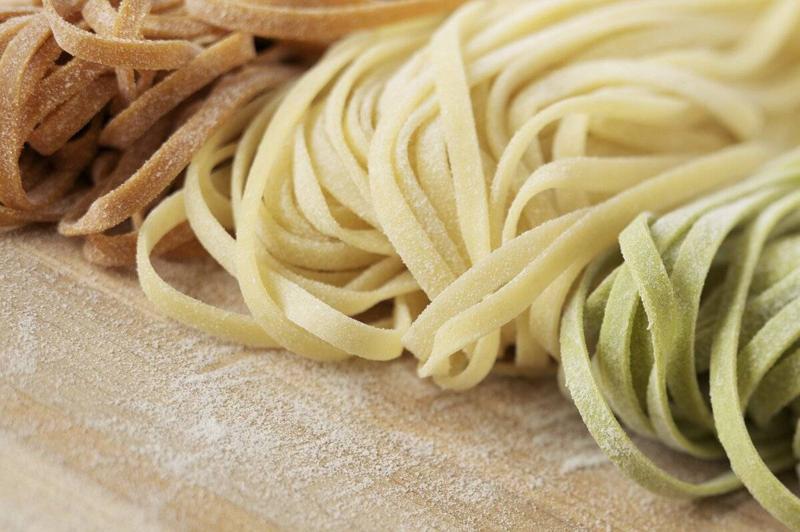What Is the Mediterranean Diet?
The culinary traditions and dietary practices of the Mediterranean region, spanning not just Greece and Italy but also Croatia, Turkey, Spain, and Morocco, are undeniably both flavorful and nutritious. However, the "Americanized" iteration of Mediterranean cuisine, featuring deep-fried cheese and falafel, rich pasta dishes, and substantial amounts of beef and pork, is far from being a healthy representation.
While individuals in the diverse Mediterranean region consume a variety of foods, their diet predominantly revolves around plant-based options such as whole grains, beans, nuts, and unsaturated fats derived from extra-virgin olive oil. Additionally, a modest amount of lean poultry and ample seafood are also permissible in this dietary pattern.
The Mediterranean diet prioritizes the quality of the diet over individual nutrients or food groups. Numerous studies have consistently demonstrated its effectiveness in reducing the risk of chronic health conditions, including heart disease and Type 2 diabetes, while simultaneously fostering longevity and enhancing overall quality of life.
The nutritional value and health advantages of the Mediterranean diet were initially recorded in the Seven Countries Study. This comprehensive study explored the correlation between diet and heart diseases among approximately 13,000 men spanning from 1958 to 1999. The participants originated from seven countries, which included:
Greece.
Italy.
Japan.
Finland.
Croatia and Serbia (Former Yugoslavia).
The Netherlands.
U.S.
How Does the Mediterranean Diet Work?
Fill your plate with a wide range of foods.
Eat fruits, vegetables, whole grains, beans, nuts, legumes, olive oil, herbs and spices daily.
Poultry, eggs, cheese and yogurt are OK in moderation.
Red meat and sweets are best reserved as occasional treats.
The occasional glass of red wine is acceptable.
There isn't a single Mediterranean diet. Greeks eat differently than Italians, and Turks eatdifferently from the French and Spanish. There's even a Costa Rican version of the Mediterranean diet. But they share many of the same principles. Working with the Harvard School of Public Health and the World Health Organization, Oldways, a nonprofit food think tank in Boston, developed a consumer-friendly Mediterranean diet pyramid that offers guidelines on how to fill your plate – and maybe wineglass – the Mediterranean way.
Because the Mediterranean diet focuses on nutrient-dense fruits, vegetables, whole grains, nuts, seeds and healthy fats, it leaves little room for the saturated fat, added sugars and sodium that inundate the standard American diet. As a result, people who eat a Mediterranean-style diet have longer life spans, report a higher quality of life and are less likely to suffer from chronic diseases, such as cancer and heart disease.
There are a lot of misconceptions about the Mediterranean diet – namely that eating piles of refined pasta covered in cheese sauce and sausage meets the requirements of a Mediterranean diet plan. While you can eat whole-wheat pasta (or even regular pasta) on the Mediterranean eating plan, it would be topped with plenty of fresh vegetables and beans, dressed with olive oil and perhaps sprinkled with a small amount of natural cheese.
Can I Lose Weight on the Mediterranean Diet?
There are many studies that show a Mediterranean way of eating can be an effective diet for weight loss and weight maintenance, says Elena Paravantes-Hargitt, a registered dietitian nutritionist specializing in the Mediterranean diet and author of "The Mediterranean Diet Cookbook for Beginners."
"One of the most important aspects of the Mediterranean diet in regards to weight loss is that it is easy to follow for long periods of time,” says Paravantes-Hargitt, who is also the founder of olivetomato.com, a website dedicated to the Greek-Mediterranean diet. She adds that “a traditional Mediterranean diet is 40% carbohydrates, 40% fat and about 20% protein. This combination has been shown to not only be ideal for long-term weight loss but is associated with lower mortality rates. As the diet is rich in vegetables, beans and olive oil, it provides good satiety.” Satiety is a feeling of fullness and satisfaction after eating.
Short-Term Weight Loss
If your goal is to fit into a 10-year-old pair of jeans in two weeks, the Mediterranean diet isn’t a great fit for you. However, health experts recommend losing no more than one or two pounds a week for a sustained length of time, and it isn't uncommon to lose faster at the beginning of your diet, especially if you have a lot of weight to lose.
According to some research, your best bet might be to combine a Mediterranean diet with a reduction in carbs. We aren’t talking about he keto or paleo diet here. In one study, 194 overweight individuals with Type 2 diabetes were divided into three diet groups for one year (1). The three groups followed one of three diets. All three groups also cut calorie intake and exercised regularly. After 12 months, the average weight loss was:
22 pounds for the low-carbohydrate Mediterranean diet group.
17 pounds for the American Diabetes Association diet group.
16 pounds for the traditional Mediterranean diet.
People who eat about 40% of their total calories in the form of carbohydrates and emphasize plant-based sources of protein and fat also have the lowest risk of developing Type 2 diabetes, according to an American Heart Association review of three studies involving nearly 204,000 adults. This is especially impressive given that adults in some studies were monitored for up to 30 years.
If you really want to seal the deal and lose weight, add exercise to your Mediterranean lifestyle. An often-cited study by medical professionals showed that people enrolled in a program combining a low-calorie Mediterranean diet, an exercise program and counseling fared much better than the participants who were told to adhere to a Mediterranean diet but weren’t given any information about exercise or weight loss (2).
Long-Term Weight Loss
Although few studies have been completed to demonstrate effectiveness of the Mediterranean diet for long-term weight loss, the research is promising.
Weight Maintenance and Management
According to a study of 32,119 participants, following the Mediterranean diet can minimize both weight gain and an expanding waistline (3).


Do: Load up on whole grains and veggies.
How to Get Started on the Mediterranean Diet
Think of meat as the side dish and whole grains or vegetables as the main dish.
Learn to enjoy fruit as a sweet finish to your meal – grilling, broiling or baking fruit with a squeeze of citrus juice before serving it with a dollop of vanilla yogurt and a sprinkle of cinnamon is a satisfying and healthful dessert.
Look at recipes online and explore outside the borders of Greece and Italy. Be creative and have fun with it.
Plan some meals and snacks in advance so you don’t have to think about what to prepare when you’re tired and hungry.
What Does the Mediterranean Diet Cost?
You can follow a budget-friendly Mediterranean diet. While some ingredients – olive oil, nuts, fish and fresh produce – can be expensive, you can find ways to keep the tab reasonable, especially if you're replacing red meats and meals with plant-based home cooking.
“The Mediterranean diet recommends many low-cost, whole foods, such as fruits, veggies, whole grains and legumes. People may think they can’t afford seafood, but there are a number of budget-friendly options such as canned tuna, salmon and sardines,” says Lindsey Pine, a culinary dietitian in Los Angeles and author of the “Mediterranean Diet Meal Prep Cookbook” and “Quick & Easy Mediterranean Diet for Beginners.”
Is the Mediterranean Diet Easy to Follow?
The Mediterranean diet can be convenient. You can combine seafood, beans, whole-wheat pasta and whole grains – like farro or quinoa – with an infinite combination of fruit, vegetables, herbs and spices to create easy meals. Purchasing precooked quinoa, brown rice, lentils and beans will make meal prep easy even on the busiest days.
Mediterranean recipes are plentiful. A simple online search will turn up hundreds of healthy Mediterranean meal ideas. Want more inspiration? Oldways, the nonprofit food think tank in Boston that helped develop a Mediterranean food pyramid, recommends the "4-Week Mediterranean Diet Menu Plan." And America's Test Kitchen offers many Mediterranean diet recipes – even recipes specifically for an Instant Pot – from their selection of cookbooks, including “The Complete Mediterranean Cookbook: 500 Vibrant, Kitchen-Tested Recipes for Living and Eating Well Every Day.”
If you eat out while following the Mediterranean diet, share an entree with a friend. Start with a house salad or order extra veggies a la carte so that you aren't as hungry when the main course arrives. Grilled salmon or tuna, grain bowls and pizza made with a cauliflower or whole-grain crust are good choices.
You'll find lots of free Mediterranean diet resources on the Oldways website,ncluding an easy-to-understand food pyramid; a printable grocery list; gender- and age-specific tips onmaking the Mediterranean switch; a quick-read brochure; a recipe newsletter; and a glossary of Mediterranean staples, from bruschetta to tapenade.
Hunger shouldn't be a problem on this diet. Fiber and healthy fats are filling, and you'll eat lots of fiber-packed produce and whole grains on this diet.
Who Should Not Try the Mediterranean Diet?
Pros
Nutritionally sound.
Diverse foods and flavors.
No counting carbs, points or calories.
Filling – it's rich in high-fiber foods.
No off-limit foods or food groups.
Has proven health benefits.
Cons
Tedious portioning, meal planning or prep.
Lacks in-depth nutritional guidance.
What Can I Eat? Do’s and Dont’s
Foods to Eat
Fresh fruits and vegetables. There are nearly unlimited fresh fruits and vegetables on the Mediterranean diet. Note that potatoes are excluded from most Mediterranean diet scoring systems.
Whole grains. Fill your pantry with quinoa, barley, farro, freekeh and other whole grains.
Beans, peas, lentils and soy. Plenty of beans, lentils and peas will add protein, fiber, vitamins and minerals to your meals.
Nuts and seeds. Snack on a handful of nuts or add a sprinkling of seeds to your salad or oatmeal.
Olive oil. Olive oil is most commonly used, but canola, sunflower, avocado, sesame, grapeseed and walnut oils are also good options.
Fish and seafood. Enjoy fish or seafood often, at least twice a week.
Poultry: Consume moderate portions of poultry – like chicken and turkey – daily to weekly.
Yogurt and cheese. Plain yogurt and natural cheeses will add a dash of flavor along with calcium, vitamin D and potassium to your meal.
Eggs: Eggs are OK occasionally but are not consumed regularly on the Mediterranean diet.
Foods to Avoid (or Limit)
Sweets. Look at sweets as celebratory food rather than an everyday indulgence.
Red meat. Treat red meat as a garnish. For example, you might choose to top a salad with thinly sliced beef tenderloin.
Processed meat. Processed meat is rarely if ever, consumed.
Processed foods. Processed snack foods, such as buttery crackers and potato chips, do not fit the Mediterranean eating pattern, but there are plenty of healthy options you can reach for instead.
Alcohol. Although drinking red wine in moderation is OK, overdoing alcohol can be detrimental to well-being. Alcohol is not encouraged for individuals who do not currently drink.
Butter. Substitute butter with a healthier alternative, such as olive oil.
Whole-fat dairy. Ice cream and other whole-fat dairy products are very rarely consumed.
Sugary drinks. Sugary drinks, including fruit juice, are discouraged.
Vegan and Following the Mediterranean Diet
It’s certainly possible to eat a nutritionally-complete vegan Mediterranean diet. By choosing a variety of protein-rich plant-based foods such as beans, lentils and tofu, selecting fortified plant-based dairy products and choosing vegan sources of unsaturated fatty acids such as walnuts and flaxseed, a vegan could plan a well-balanced menu for themselves. See all vegan diets.
Vegetarian and Following the Mediterranean Diet
Because red meat and poultry are limited in the Mediterranean diet, it would not be too much work for a vegetarian to adapt this eating plan to meet their individual needs. See all vegetarian diets.
Gluten Free and Following the Mediterranean Diet
It’s possible to follow a healthy gluten-free Mediterranean diet. The main objective would be to choose high-fiber gluten-free grains such as quinoa, amaranth and wild rice. The beans, lentils, nuts, seeds, fruits and vegetables consumed in plentiful amounts will also boost fiber intake. See all gluten-free diets.
Halal and Following the Mediterranean Diet
It is entirely possible to choose halal meats and poultry and avoid both pork and alcohol while sticking to the Mediterranean eating plan. See all halal diets.
Kosher and Following the Mediterranean Diet
It will not be challenging to separate meat and dairy, select kosher-certified meats and avoid shellfish on the Mediterranean diet. You'll be able to choose unleavened bread during Passover. See all kosher diets.






